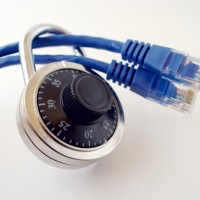Privacy has been among the major concerns for most internet users in the last couple of years. We have had so many data breach scandals in recent years, which have left many internet users worried about how their data is handled by the various apps and websites they access on the internet.
Among the best solutions for safely using the internet is installing a VPN app on all your devices. But what is a VPN and how exactly does it ensure your privacy while using the internet? Let’s find out.
What is a VPN?
A Virtual Private Network (VPN) is a service that protects your internet connection by encrypting your browsing information hence hiding it from all third parties, including your ISP and government. Even the websites and online services you use won’t see some of your personal information, including your location, the browser you are using, and the IP address of the device you are using.
However, you need to choose a reliable VPN app if you are to enjoy all the benefits that come with using a VPN service.
How does a VPN work?
While browsing the web or using a mobile app, you are constantly sending data from your device and getting feedback (data) from the website or web application you are interacting with. Without a VPN, this raw data can be intercepted and accessed in between the journey by your ISP and several other third parties. If you are using a public WiFi network, people using the same network can easily know your device’s IP address or even access your device.
When you use a VPN, all your browsing data is encrypted before it leaves your device. This data is then sent over to the VPN’s server. The request to the website or web app you are interacting with will now come from the VPN server and not your device. That is why the websites and apps you use will never know your real location if you always use a VPN.
Since all your browsing data is encrypted, they also won’t get any of your other browsing details such as your IP address, the browser you are using to access the internet, the operating system of your device, etc. This makes it almost impossible to profile you unless you agree to give them your personal information voluntarily.
To ensure fast and reliable connection speeds, VPN services build several servers in different locations. Users are then distributed among these servers to ensure no single server slows down due to congestion. For example, a VPN service like Surfshark has over 3200 servers in 65 countries. So, always make sure to check the number of servers a VPN has and where they are located before choosing the VPN app to install.
Users also have the option of choosing a server which they would want their data to be sent through. For the fastest connection speeds, it is best to choose a server in a region closer to you. However, if your main reason for using a VPN is to access location-locked content and apps, choose a server in one of the unrestricted countries.
